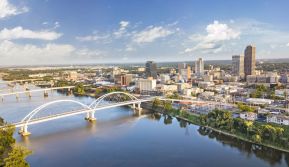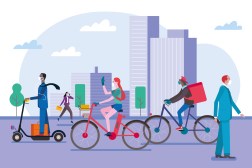More than 300 applicants pitch smart city ideas in Mayors Challenge

With millions of dollars in smart city funding at stake, 324 cities have submitted projects to win this year’s Bloomberg Philanthropies’ Mayors Challenge.
The contest is one of the most prestigious smart city grant competitions, with a purse of more than $10 million in prize money for cities looking to accelerate and improve government services.
The grand prize winner will be awarded $5 million to realize its dream smart city project, according to a blog post by Anne Emig, a member of Bloomberg Philanthropies Government Innovation Team. Four runner-ups are set to receive $1 million apiece, and for the challenge’s 35 finalists, Bloomberg is allotting up to $100,000 to help the cities create proof-of-concepts for final submission.
Emig said cursory review of the smart city project submissions revealed numerous insights.
“At first glance, the applications reflect what one might expect, including emerging concerns around opioid addiction, urban revitalization, and job training and workforce development,” Emig said. “But a deeper dive uncovers more surprising insights, including mayors’ commitment to engaging residents to identify problems, issues that appear to cluster in particular regions, and the variety of unique approaches cities are considering to tackle these concerns.”
In the Western part of the country, a significant share of cities focused on climate-related solutions, Emig said. Thirty-three percent of job growth projects were found in Southern cities, and 40 percent of projects to support local youth came from the Midwest.
The size of the submitting cities was also found to be influential, Emig said. Smaller and mid-sized cities, or cities with fewer than 100,000 residents, accounted for 79 percent of projects for improving infrastructure, while cities with 100,000 or more residents tended to gear projects toward housing issues, a group representing 58 percent of such projects.
Emig said key takeaway from the submissions is a tendency for cities to find solutions outside of technology.
“While just shy of a third of the cities, 27 percent, are looking to digital and or mobile solutions, the remaining 73 percent are taking dozens of different approaches, including everything from training and infrastructure building to offering financial incentives and gamification,” Emig said.
Bloomberg has organized a committee to reduce the applications down to the next 35 finalists, a selection that will happen in the first quarter of 2018. Winners will be announced in the fall.






